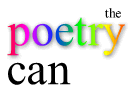Suzzanah Evans, smith|doorstop poet, offers some advice on putting your pamphlet together (for entry into the International Book & Pamphlet Competition from smith|doorstop)
www.poetrybusiness.co.uk/tips-for-putting-your-pamphlet-together
Lucy English explores the use of spoken word poetry in poetry films
www.poetryfilmlive.com/writing-poetry-for-poetry-films-an-exploration-of-the-use-of-spoken-word-poetry-in-poetry-films
Ben Banyard offers some tips on setting up your own online poetry magazine as a parting gift from Clear Poetry.
www.benbanyard.wordpress.com/2017/11/23/diy-the-punk-ethic
Rachel Piercy of The Poetry Society asked regular entrants and winners of poetry competitions for tips and advice.
www.poetrysociety.org.uk/dressed-for-success-entering-competitions
Publisher and philanthropist William Sieghart is interviewed.
www.theguardian.com/william-sieghart-meet-author-interview
Do you remember how in the classroom poems were so often taught as if they were riddles? What is the poet really trying to say here? What is the theme or message of this poem? What does this word “purple” or “flower” or “grass” really mean?
Author Matthew Zapruder discusses how difficult it is, or isn't, to understand a poem.
www.nytimes.com/understanding-poetry-is-more-straightforward-than-you-think.html
Karen Volkman, author of Whereso (BOA Editions, 2016), recipient of the James Laughlin Award, given by the Academy of American Poets, and the Iowa Poetry Prize discusses the history and form of the prose poem.
www.poets.org/poetsorg/text/mutable-boundaries-prose-poetry
Advice for blocked writers and aspiring poets from a Nobel Prize winner’s newspaper column.
Selections from columns originally published in the Polish newspaper Literary Life. In these columns, famed poet Wislawa Szymborska answered letters from ordinary people who wanted to write poetry. Translated by Clare Cavanagh.
www.poetryfoundation.org/features/articles/detail/68657
Do you say ‘weep’ ever – except inside a poem?
Helena Nelson discusses the issue of using 'poetic' words when writing poems.
www.happenstancepress.com/index/reining-in-the-high-horse
The first three or four lines of a poem are make-or-break territory. If you hook the reader firmly at the start, they’ll follow you willingly right through to the very last syllable.
www.happenstancepress.org/how-not-to-begin-a-poem
You have a poetry pamphlet in print. So what next? Poets both crave and fear reviews but mainly they needn’t lose sleep. ‘Publishing a volume of verse’, as Don Marquis notably remarked, ‘is like dropping a rose petal into the Grand Canyon and waiting for the echo.’
www.happenstancepress.org/how-to-get-your-pamphlet-reviewed
Lunar Poetry podcast about poetry and spoken word in Bristol and Bath featuring David Turner talking to Lucy English, Clive Bernie and Rebecca Tantony.
www.soundcloud.com/spoken-word-in-bristol-bath
'Poetry is a mix of clarity and mystery. It’s important to know when to be clear and when to be mysterious.'
Billy Collins interviewed by Daniel Asa Rose for Observer Culture online.
www.observer.com/2016/10/billy-collins
Jason Schneiderman, author of Primary Source and other books, discusses how mixing fact and fiction can make the difference when writing an effective autobiographical poem.
www.indolentbooks.com/poetry-autobiographical















































